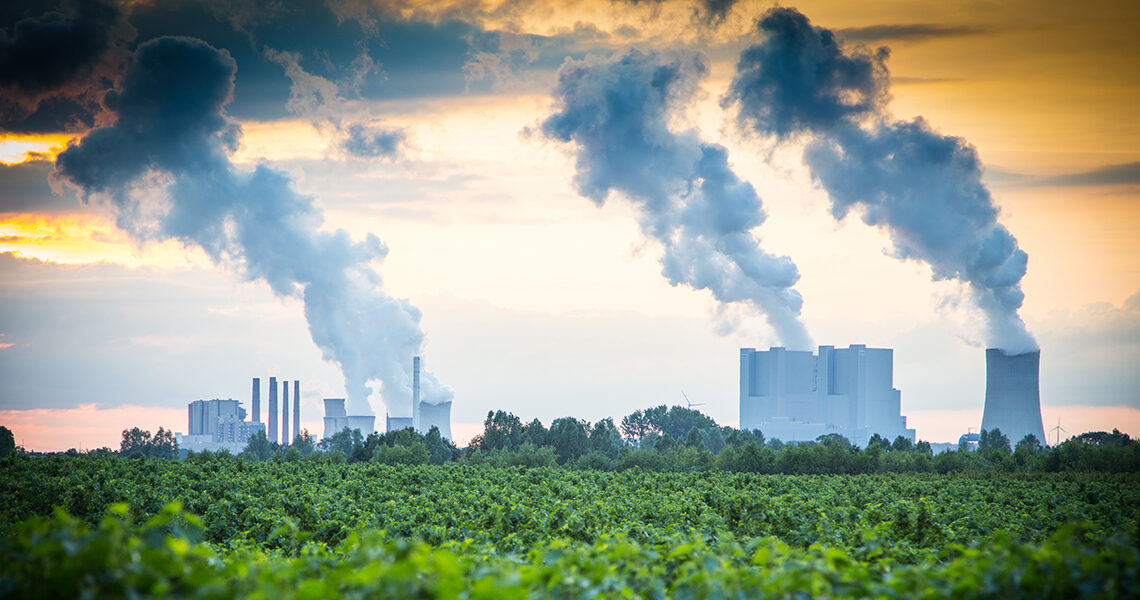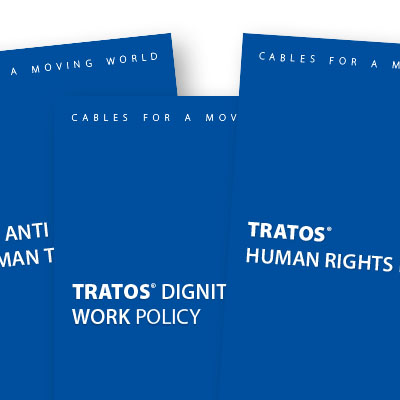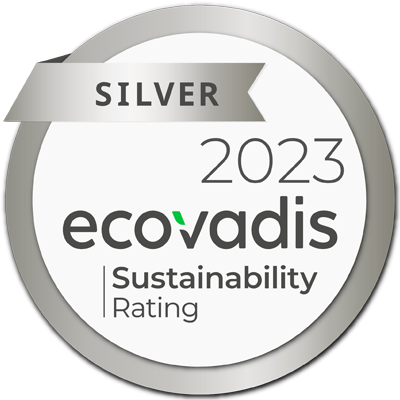The first pillar of Tratos’ CO2 strategy is about measuring the carbon footprint that a product has throughout its life cycle. Tratos firmly believes that the first step towards promoting sustainable development and positively impacting the environment is to become aware of the level of emissions that a company brings into the environment with its products. By measuring these emissions, a company can gain a clear understanding of its impact on the environment, and take necessary actions to reduce it. This measuring stage is crucial in allowing a company to act upon the impact produced.
The Carbon Footprint represents the value of greenhouse gas emissions generated through the entire life cycle of a product or service, during a given period. For the calculation of the carbon footprint of the product, the boundaries are established according to the life cycle of the product and therefore include all the production processes and services related to the product, starting from the extraction and production of raw materials, passing from the manufacture of the product and ending with the use and end of life phase.
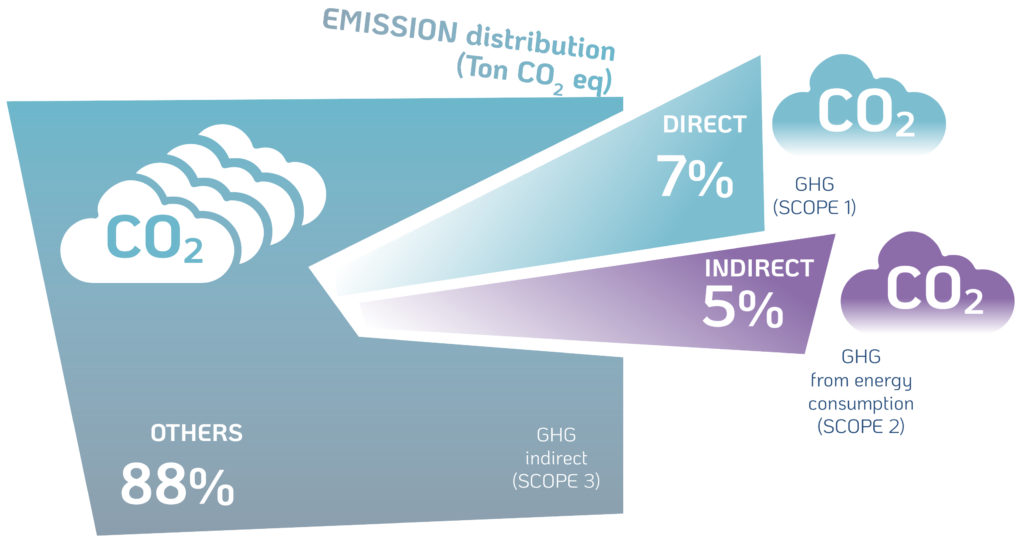
During 2022 Tratos’ emissions were:
- Scope 1 7%
- Scope 2 5%
- Scope 3 88%
Tratos is measuring all the emissions produced by all of its cables during their life cycles to have an overview of the level of emissions produced by the company and to understand how to reduce those emissions.
During 2022 Tratos’ emissions were attributed:
- 7% to core processes;
- 1% to downstream processes;
- 92% to upstream processes
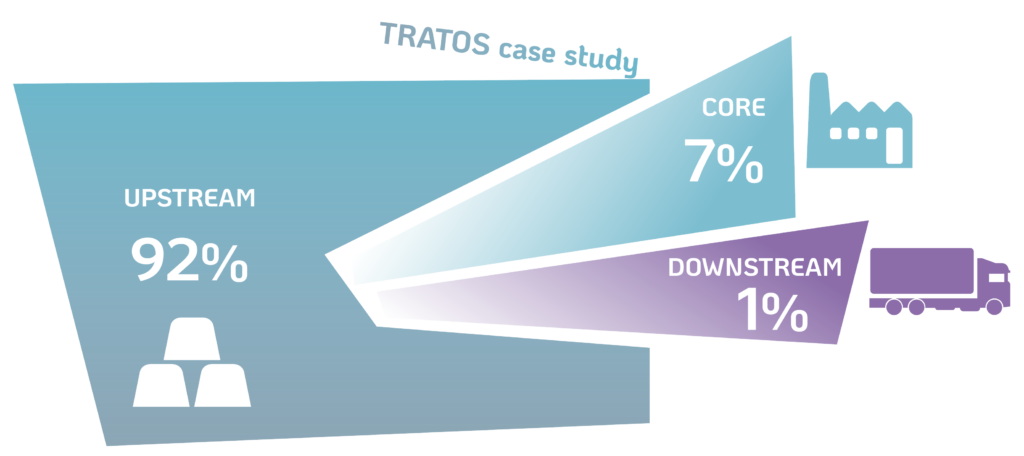
While measuring the impact of its cables Tratos realises the importance of proximity and location of end-users of the product. Indeed, Tratos’ analysis revealed that transportation can massively increase the level of CO2 emitted, therefore, if a company would like to truly be sustainable and promote sustainability, products sold or bought by the company must be as close as possible to the production site.
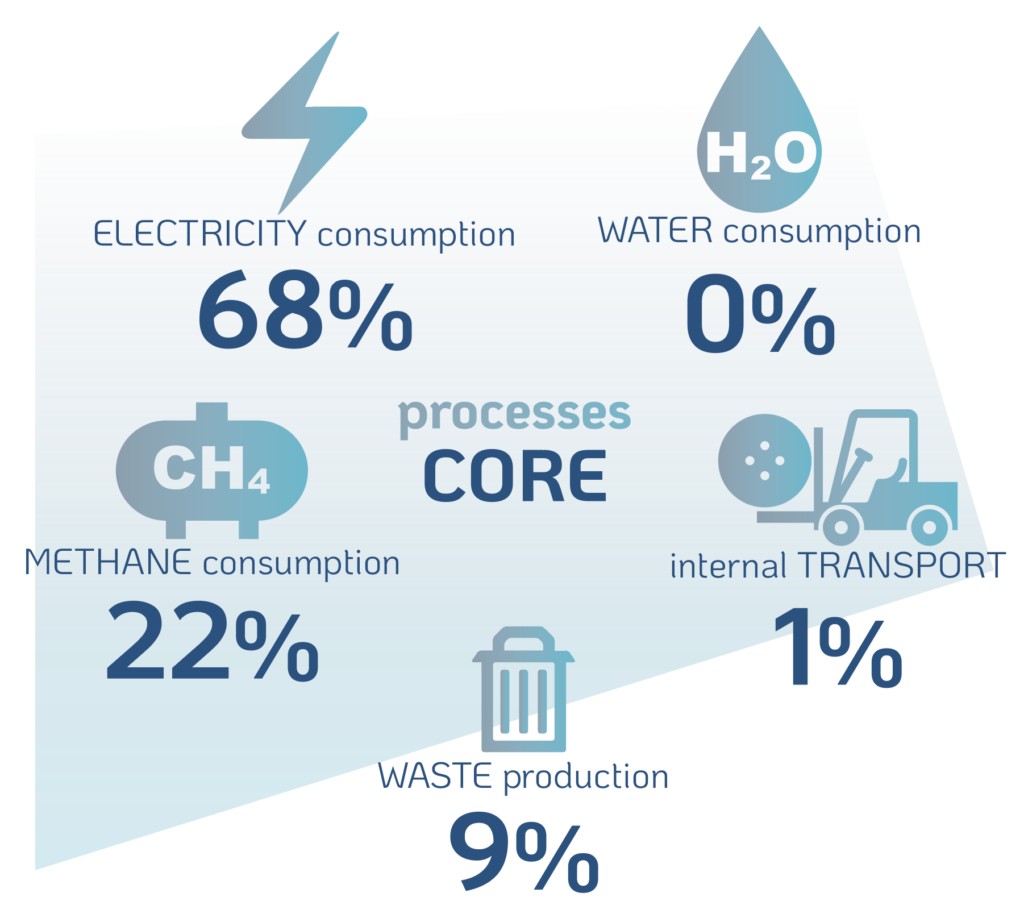
The distribution of emissions in the core processes is as follows:
- Electricity consumption – 68%
- Methane consumption – 22%
- Waste management – 9%
- Internal transport- 1 %
- Water consumption – 0%
While measuring the environmental impact of its cable, Tratos deemed it appropriate to take into account and measure the emission produced in the transportation of its product from the production site to make a specific assessment in terms of transport to the end customer.
Tratos has conducted an analysis of the upstream processes and its emissions are as follows:
- Extraction of raw materials – 99%
- Raw material transportation – 1 %
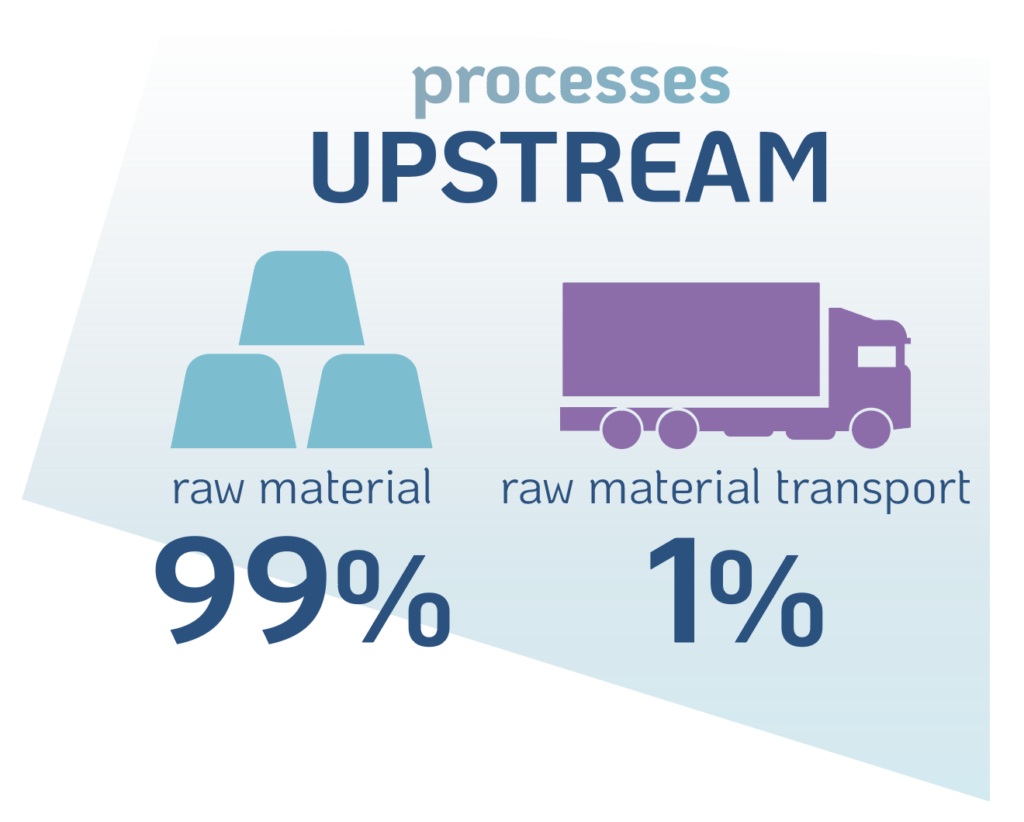
Case study
Three different scenarios were created about a cable that has to be transported from a Tratos factory to the end user of the cable:
- From Tratos factory in Pieve Santo Stefano (Italy) to Glasgow (by road)
- From a hypothetical production site in Calcutta to Glasgow (by ship)
- From a hypothetical production site in Shanghai to Glasgow (by ship)
When assessing the emission factor the company considered the data supplied by the UK Government in the document “UK Government – GHG Conversion Factors for Company Reporting”.
For each of the three cases, these are the data, sources and elements that have been taken into consideration:
| Case 1 | Case 2 and 3 |
| Data Source: UK Government data Validity: Year 2019 Type Road transport (diesel, lorry > 33t) Emission factor Quantity 1.157 UoM. kgCO2/km | Data Source: UK Government data Validity: Year 2019 Type Transport by ship (general cargo ship) Emission factor Quantity 0.01323 UoM. kgCO2/(ton*km) |
For each of the cases, the worst-case scenario has been hypothesized. This worst-case scenario happens when the transport of the cable brings the greatest number of CO2 values, cable cod.200293 – Aluminium Xlpe Pvc 1 kV 2X50(1.5)+60. The weight of the same is about 537 kg/km and in the year 2018, it is estimated the production of about 256.38 km, equal to 137,676.06 kg of cable.
Below the contribution in terms of CO2 equivalent tons referred to the 3 distinct cases is reported.
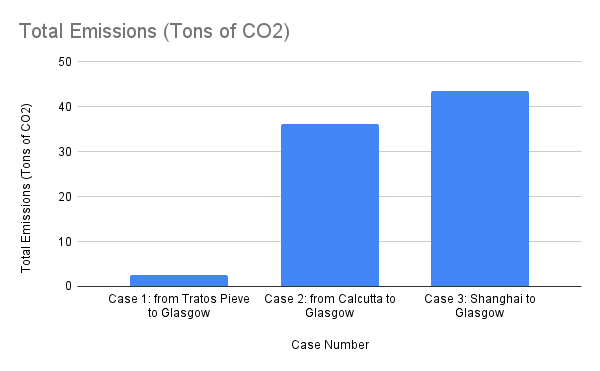
It is evident from the small amount of data that are reported above that the analysis that when Tratos measured CO2 emissions it emerges that there are two crucial factors to keep into account. Indeed, when measuring and evaluating CO2 emissions, the origin of the product and the proximity of the product to the clients/customers that will use that product appear to be paramount. It is evident that to lower CO2 emissions it is crucial to keep the product close to its end-users; only in this way, the CO2 emissions of the product will not massively increase because of transportation processes.
When producing and selling a product is therefore paramount, to allow such a product to have a low/lower environmental impact, and to make sure that that product is, after its production, sold and used by someone that is proximate to the product itself.
Therefore when you start to measure you start to realise what is sustainable or not, and you start to understand what makes a product and thus a company sustainable
Find out more about Tratos Environmental measures in the Environmental section in our policies procedures and statements that you can access from below.
TRATOS Policies, Procedures and Statements
Corporate Social Responsibility, Human Rights, Anti-Slavery, Dignity at Work policies and more: A great company is defined as much by how it does things as what it does. When a company is set up specifically to help people, as Tratos was, enlightened governance, its procedures and policies are fiercely upheld.
